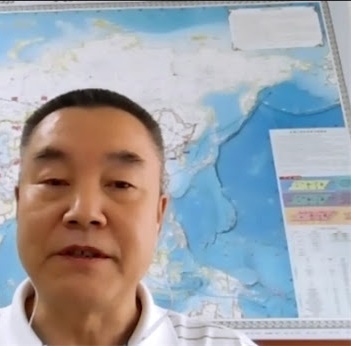Large-scale farming to bring agricultural progress in Pakistan: Chinese scholar

Beijing: “There is enormous potential for China and Pakistan to cooperate in energy, animal husbandry, cold water fish, agricultural machinery and comprehensive agricultural projects on a village or region scale will prolong industry chain and bring more benefits to Pakistani people,” said Long Ruijun, Professor at School of Life Sciences, Lanzhou University.
Currently, Long Ruijun’s team is cooperating with their Pakistani partners in energy, animal husbandry, cold water fish, and agricultural machinery. Training sessions and personnel exchanges have also been made possible.
Specially, Long Ruijun highlighted that the similarity of geography and weather between Pakistan’s northern mountain areas and China’s Gansu Province creates more possibilities of technology transfer and cooperation. “Based on the similarity, many developed Chinese agricultural technologies can be applied to Pakistan straightway,” Long Ruijun said in an interview.
The Lanzhou University has established China-Pakistan Biomass Energy Center jointly with Pakistan Agricultural Research Council to help Pakistanis solve energy shortage via using methane gas, etc. Moreover, as animal husbandry is a pillar industry in Pakistan, competitive genetic resources of forage grass and yak and small and medium sized machinery for producing silage are being introduced to Pakistan.
Having made a series cooperation with Pakistan, Long Ruijun acknowledged that China-Pakistan friendship is the anchor of stability for bilateral collaboration in multiple areas, which meanwhile helps more agricultural cooperation emerge between the two countries.
“When Chinese experts ask me if they want to extend international cooperation, which country should they go to cooperate with first, I always tell them that would be Pakistan. With the 70-year strong diplomatic ties and unbreakable traditional friendship, various forms of cooperation will be started more smoothly,” Long Ruijun told China Economic Net.
“China-Pakistan can be a role model of successful agricultural cooperation for the cooperation with other countries in South Asia and Central Asia in the future,” he added.
Currently increasingly more projects are being reached between China and Pakistan. Long Ruijun said the key to the current smooth cooperation made by them is that they always support Pakistani friends with the technologies really desperately needed in Pakistan.
“When we go to Pakistan, we should follow the Pakistani way and adapt and optimize our technologies to suit Pakistan’s reality,” Long Ruijun underlined.
About large-scale farming to accelerate Pakistan’s agricultural progress, he said, “We are planning to establish some comprehensive agricultural demonstration in Pakistan on a village or region scale, to prolong industry chain.”
In Long Ruijun’s view, developing large-scale farming will create much more benefits for local villagers, decrease transportation costs, and attract more foreign investment as well. By the close integration of cultivation, breeding, processing, marketing and intelligent management, technologies of crop varieties, irrigation, solar energy, machinery, e-commerce, etc. can be applied simultaneously, to produce value-added products that can enter the international market.
As a “bridge” connecting China and Pakistan in the last few years, Long Ruijun truly felt the development brought by China-Pakistan Economic Corridor (CPEC).
“In 2017 when we travelled from northern KP province to Islamabad, it took a long time. My friend just told me, a road constructed under CPEC has greatly shortened the time. The progress of infrastructure in Pakistan facilitates our cooperation to a large extent,” Long said.
Now as CPEC has entered the second phase, putting more emphasis on improve people’s livelihood, Long Ruijun hopes agricultural cooperation will help further strengthen people-to-people bond between China and Pakistan.
“The infrastructure projects under CPEC have laid a solid basis for more cooperation between us. In the days to come, there is enormous potential for the two countries to cooperate in the agricultural sector.
I believe agricultural and industrial cooperation will improve local people’s livelihood and yield win-win results,” Long Ruijun concluded the interview.





